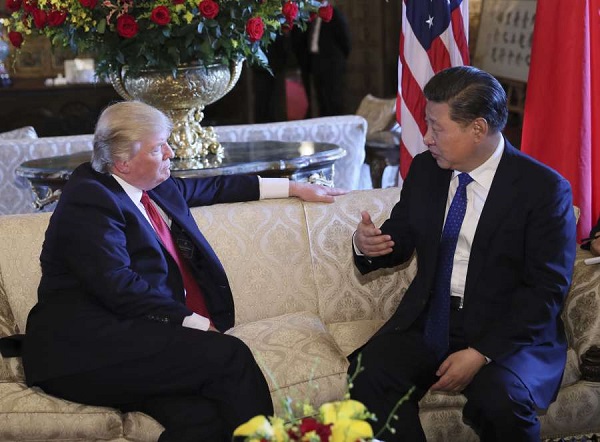

Follow us on:  
|


Can’t we just get along? File photo of US President Donald Trump with Chinese President Xi Jinping. It is unclear how the tariffs will affect their warm relationship
A number of G7 and World Trade Organization members have taken retaliatory measures and/or filed complaints against recent US tariffs on steel and aluminum imports.
On Tuesday, Russia became the seventh WTO member – after fellow BRICS members China and India, and others – to file a request for “dispute consultations” with the US over the latter’s new tariff policy.
“Russia claims the US duties of 25 per cent and 10 per cent on imports of steel and aluminum products, respectively, are inconsistent with provisions of the WTO’s General Agreement on Tariffs and Trade (GATT) 1994 and the Agreement on Safeguards,” a statement from the WTO said.
Russia’s move comes just days after Canada – which is America’s second largest trade partner – slapped tariffs on some $12.6 billion in American-manufactured goods in retaliation for the Trump administration’s tariffs.
In tit-for-tat measures, the US steel and iron industries will face a 25-per cent Canadian tariff but other products like dish detergent and ketchup will be affected.
Canada will also levy additional duties on popular consumer staples such as US beef, fowl, peanut butter and whiskey. According to Canadian news media, the tariffs will also hit orange juice, cucumbers, strawberry jam and other popular food and fruit items.
In late June, the European Union also imposed retaliatory tariffs on American motorbikes, whiskey and a variety of food products.
But the Trump administration appears undeterred. On Tuesday, US President Donald Trump said:
The economy is doing perhaps better than ever before, and that’s prior to fixing some of the worst and most unfair Trade Deals ever made by any country. In any event, they are coming along very well. Most countries agree that they must be changed, but nobody ever asked!
— Donald J. Trump (@realDonaldTrump) July 3, 2018
The US is expected to begin the first of two stages of tariffs targeting some $34 billion in Chinese goods on July 6.
China is expected to retaliate also in multiple stages on the same day targeting some 600 US products including pork, aircraft parts, meat and fruit processors, and hundreds of other industrial products.
The Chinese say they do not want a trade war but will retaliate if pressed by the US:
“This move not only hurts bilateral interests, but also undermines world trade order. The Chinese side firmly opposes that,” a statement from the Chinese Ministry of Commerce recently said.
Brewing war?
For the moment, most market analysts are warning of the impact of escalation between the US and its largest trading partners – China is number one; Canada is number two, with the EU close behind – on the world economy.
They are careful not to use the term trade war, but rather focus on trade tensions.
They’re waiting for the Chinese response on Friday and if both Beijing and Washington draw lines in the sand, the escalation will likely lead to an all-out trade war.
The Chinese currency yuan went into free fall to its lowest rate against the dollar in nearly a year before central bank intervention helped prop it back up on Tuesday.
This downward spiral also hit the Turkish lira and other emerging market currencies such as the South African rand.
Earlier this week, the Mexican peso also took a 1.1 per cent dive.
The MSCI’s benchmark emerging markets index dropped 0.3 per cent largely due to Asian investors feeling the trade … war … jitters.
Emerging stocks have performed the worst in 10 months, creating a rather large speed bump in what would otherwise have been a stellar rise for these markets.
On Tuesday, Japan’s Nikkei benchmark exchange continued its two-day fall of the week closing 0.12 per cent down.
China’s Shanghai Composite made some gains on Tuesday’s central bank yuan intervention to 2,779, up 0.41 per cent – still a far cry from 3,182 just a year ago.
But things could get a lot worse if Trump decides to target the European automotive industry with fresh duties.
Trump had accused the Europeans of being just as unfair as China in their trade practices with the US.
The European Commission said it would retaliate with a further set of tariffs targeting some $300 billion in American goods.
By Firas Al-Atraqchi for The BRICS Post